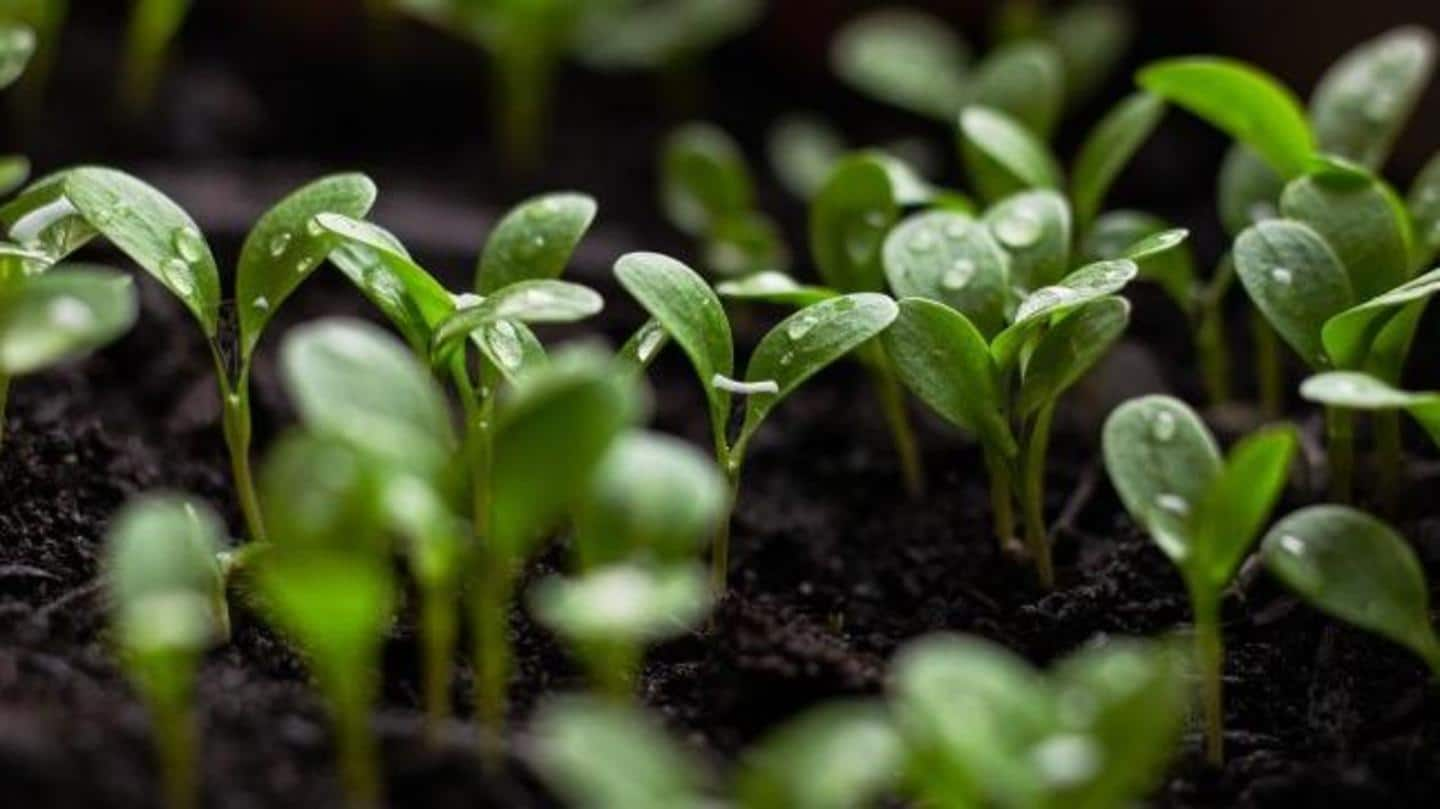
Scientists discover way to grow plants efficiently in complete darkness
What's the story
For billions of years, the process of photosynthesis has helped sustain life on earth.
However, biological photosynthesis may soon become outdated as scientists have created an artificial method that helps create food independent of sunlight more efficiently.
Researchers at the University of California and the University of Delaware have devised a way for food-producing organisms to use acetate to grow in dark.
Context
Why does this story matter?
Scientists have been tinkering with photosynthesis for a very long time. Their quest to improve biological photosynthesis has now reached a turning point.
The process of artificial photosynthesis will be a major finding, considering how it will help improve food production.
The ability to grow plants without the help of sunlight will be important in our future space quests as well.
Photosynthesis
Photosynthesis plays a vital role in making earth hospitable
We all have learned in elementary school science classes about photosynthesis. In case you don't remember, here is a quick refresher.
In the process of photosynthesis, plants absorb energy from sunlight and use it to create their own food using water and carbon dioxide.
The oxygen released by plants during this process is essential for the sustenance of human beings on earth.
Information
Only 1% of energy in sunlight ends up in plants
Despite its vital role in the survival of life, photosynthesis has been considered an inefficient process by scientists for a long time. This is mainly because only 1% of the energy from sunlight ends up in plants.
New find
Acetate is fed to plants as alternate source of carbon
In a new study published in the Nature Food journal, scientists at the University of California and the University of Delaware found a way to create food without sunlight.
It involves a two-step electrocatalytic process to convert carbon dioxide, electricity, and water into acetate.
The acetate is then fed to plants as an alternative carbon source.
Efficiency
The new method is more efficient than conventional photosynthesis
According to the study, different organisms, including green algae and yeast can be grown in the dark using the acetate-rich electrolyzer output.
Scientists say that algae production using this method is four times more efficient than conventional photosynthesis, while yeast production is 18 times more efficient.
"We found that a wide range of crops could take the acetate we provided," said the scientists.
Official words
'Artificial photosynthesis will lessen the impact of agriculture on environment'
"Using artificial photosynthesis approaches to produce food could be a paradigm shift for how we feed people," said Robert Jinkerson, corresponding author of the study.
"By increasing the efficiency of food production, less land is needed, lessening the impact agriculture has on the environment," he added.
"This technology is a more efficient method of turning solar energy into food," said Elizabeth Hann, co-lead author.